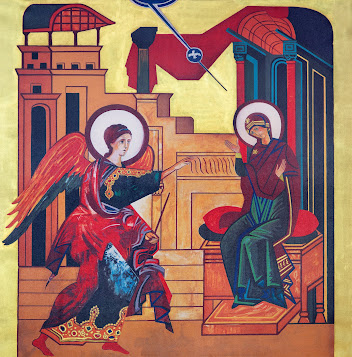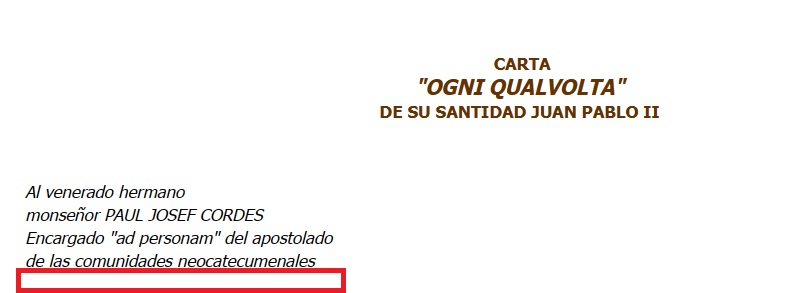[The following is an adapted translation of a recent Osservatorio article.]
God is omniscient - that is, he knows everything, even the future, and even how we will use our free will. After all, it is God who created us by endowing us with free will, and it is he who created nature, the laws of physics, and all that.
Unfortunately, the Neocatechumenal Way practices endogamy: its followers are induced to "marry the daughters of Israel," that is, to get engaged to and marry only fellow followers of the Way; the alternative is emotional blackmail ("either enter the Way or we break up"). In fact, it is very dangerous for kikolatry when one of the two spouses lives without the Neocatechumenal noose, for it becomes an involuntary demonstration that without the Way, one lives more fully the life, faith, and freedom of the children of God.
So when a Neocatechumenal couple is formed under the auspices of the Way's so-called "catechists," there is a flood of approval and compliments: "your names together were already written in heaven!" Is the implication clear? If you get engaged "in the Way," it is God who wants you to be married (maybe "within the year," before you change your mind). If, on the other hand, you get engaged to a person outside the Way, you must convert him (or her) to the Way, otherwise you go against God - literally believing that the Way is God.
But the expression "your names were already written in heaven" is no less problematic, because it insinuates that God has taken back the freedom he gave you and "planned" for you two to get married. (As if you were puppets. As if the omniscient "knowing what you will do" is equivalent to "imposing what you will do").
The Neocatechumenal mentality, in fact, relies heavily on fatalism, and needs to treat God as if he were Harry Potter with a magic wand. Otherwise, there is the risk that many adepts will choose freely rather than according to the dictates of the so-called "catechists" (charged exclusively with expanding the prestige and coffers of the Way).
Those who choose freely could sometimes be wrong; but whoever chooses according to sectarian dictates is certainly always wrong, because he has "buried his talent". He has delegated the leaders of the Way to decided his vocation, his work, his studies, his interpersonal relationships, his eventual marriage... delegated to those arrogant, stupid, ignorant leaders who have no title before God or his Church.
Worse still (for the Way), those who choose freely could often choose well, because maybe they take God's Word seriously. Maybe they say to themselves, "who's making me do these things to enrich this idolatrous sect?". Maybe they're tired of seeing injustices promoted to protect the sect and its VIPs. Maybe they're starting to no longer believe that the devil is exclusively interested in reducing the Way's money and prestige.
Let us remember that the noble title of "catechist of the Way" does not constitute any spiritual, ecclesial, moral, religious, theological, canonical, or any other type of guarantee. In some rare cases, some so-called "catechist" could take a single Gospel verse to heart, or the fate of the brothers of the communities... but you can be absolutely certain that he has already abandoned the Way, because anyone who even begins to think of taking any Christian virtue seriously already has one foot outside the sect. (And, even in spite of himself, he is an example for those who still don't have the courage to leave it).
It's not that "the Way is not for you;" on the contrary, the Way is not for the Church. It only causes harm.










